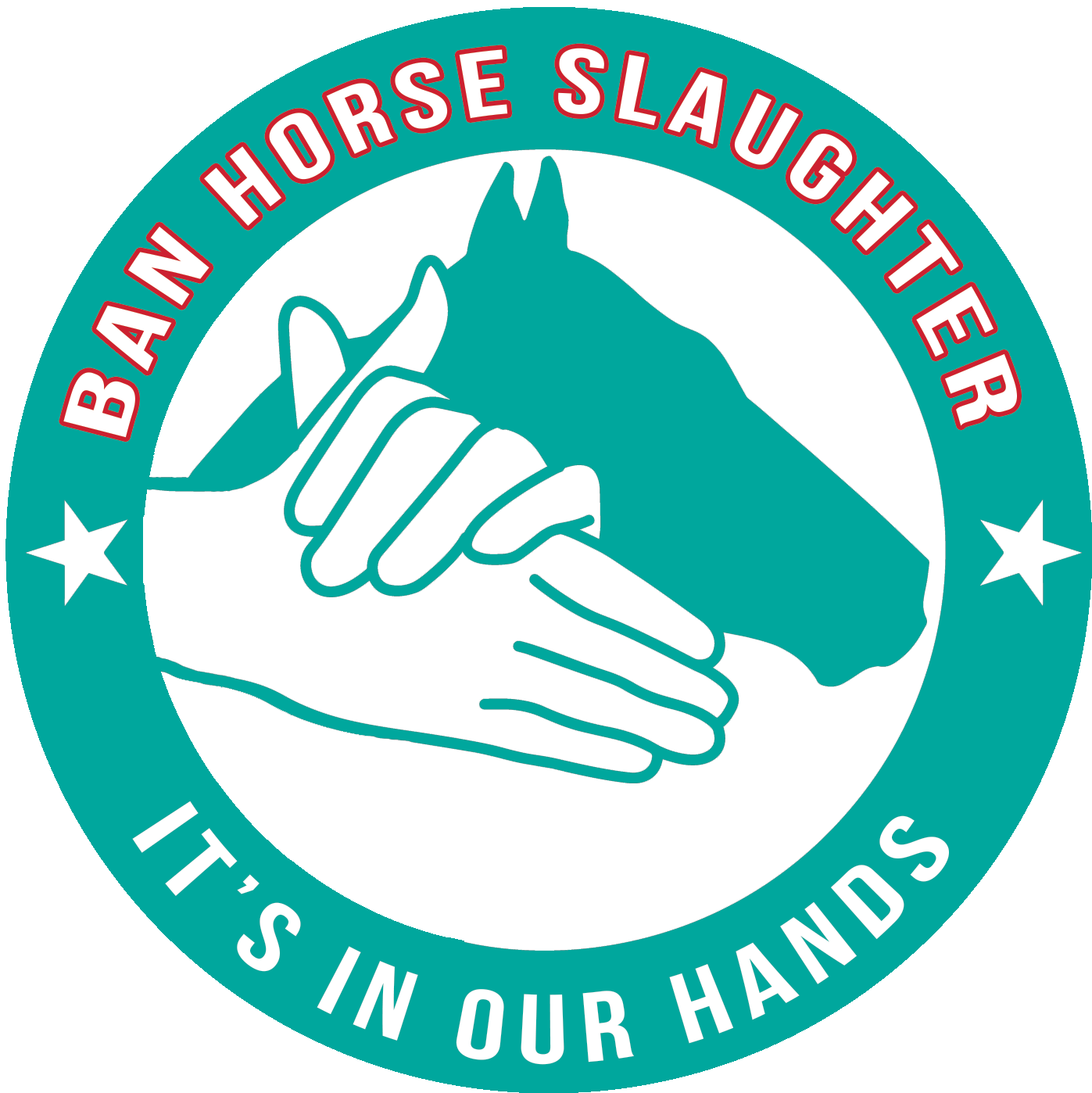The Beginning of the End
Origins of the Campaign to Ban Horse Slaughter in the United States
Before 2000 few Americans were aware that many of our beloved horses were being brutally slaughtered for human consumption overseas. Today that is largely still true outside of the animal welfare and equine community. After all, we Americans don’t eat our horses, so why would it even have occurred to us that such a thing was happening on our own soil? Yet at the time three foreign owned plants (one in Illinois and two in Texas) were butchering some 40,000 horses each year and tens of thousands more were being sent over our borders into Canada and Mexico for slaughter there. If the numbers were so high, why was this industry such a secret? And how did that secret get out?
A single call from an equine activist to an animal lobbyist in Washington, DC changed everything. The activist urged the lobbyist to visit the New Holland Livestock Sale in Pennsylvania, through which hundreds of horses were being sold each week. Many were bought up by “killer-buyers”, individuals who buy horses out of the auction ring and then transport them hundreds of miles to slaughter for a pretty profit. That visit to a single auction was a game changer.
As the lobbyist later testified before the US House of Representatives Judiciary Committee, “The pure animal suffering and terror I witnessed that day at New Holland was so fundamentally disturbing… Dozens of horses were already in the kill-pens. Of those that went through the auction ring I was able to purchase three, all of whom undoubtedly would have otherwise gone to slaughter. One was in such bad shape that we had her euthanized on the spot.”
Returning to Washington the lobbyist reached out to her colleague, Chris Heyde, and in early 2001 they began drafting a bill to halt horse slaughter. With Heyde’s extensive experience on Capitol Hill the bill quickly took off and gained enormous support among members of Congress. Movers & shakers in the horse industry, business moguls and scores of celebrities also joined the cause. Of ultimate importance, the communities that unwillingly hosted the three slaughter plants came on board, too. In 2007 we were able to close all three plants; in Texas thanks to a pre-existing state law and in Illinois by enacting the first ban to pass through a state legislature.
Undercover evidence drawn from Heyde’s 2001 visit to the Cavel horse slaughter plant in DeKalb, Illinois and return visits to New Holland, Pennsylvania exposed the barbaric way American horses were being mistreated to appease the palates of high-end diners in Europe and Asia. Support for a ban grew. Legislation passed the US House of Representatives by a landslide vote. But then the pushback from the livestock industry began. Opponents claimed a ban on horse slaughter would be the start of a slippery slope where soon all animal slaughter would be nixed. They claimed it would cause a huge rise in animal suffering. They claimed horse slaughter was a “necessary evil” without which the country would be swamped with “unwanted horses”.
Of course, none of this was true. Horse slaughter is inherently cruel and the very animals that have served us are subjected to brutal and unforgiveable cruelty. While the three US plants are now shut down under state law our horses are still being shipped to slaughter in Canada and Mexico, where conditions are even worse. 20 years later our horses are still suffering.
A federal law must be passed to end this. Logic and compassion must be exercised to see that this horrific trade is finally ended, and that the welfare of our horses is ensured. Heyde, in conjunction with the In Our Hands Action Fund, continues to lead the charge on Capitol Hill to end horse slaughter once and for all. You can help by supporting the work of In Our Hands Action Fund through a donation, signing up to contact your legislators through our Action Center and by sharing our work on social media. It is time we get back to the methods that helped propel this legislation forward and break the stagnation it has faced for years.
